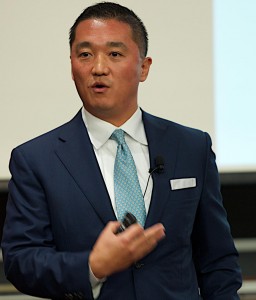
Benjamin Wey is an investigative journalist and financier on Wall Street. A graduate of Columbia University and the holder of two master’s degrees, Benjamin Wey shares his insights with our readers about his business acumen and the importance of sports in youth development.
The odds are that your kid is never going to play a professional sport. There aren’t that many jobs in sports, and almost every one of them is already taken. But I believe that the lessons you learn in any sport are directly transferrable to a career in business. So, when you are watching a Little League game, and your kid’s team is looking forward to a mercy-rule defeat, don’t sweat it. Your child is learning what he or she will need to know in business.
No. 1: Becoming good at a sport takes time and effort. You spend more time practicing than you do actually playing. Some people are good right off the bat, and some need to try much harder to only be half as good. But the more you practice, the better you become no matter what your initial skill level. Your business skills will need the same kind of development. There’s a reason people with 10 years experience often get the job when someone with minimal training does not. I happen to think that winning is fun, but a lot of work and preparation goes into every win.
No. 2: Handling losses is a huge lesson for future business people because not every deal will go your way, not every proposal is accepted and not every interview ends with a job offer. Losing doesn’t make you a loser — if you learn to handle it. Why did I lose? Was the other guy just better? If so, then I need to practice. Was I distracted? Then I need to work on concentration. Were the conditions different than I am used to? Then I need to address that. We all want to win, but the great irony is that you don’t learn from your successes — you can only learn from losses.
No. 3: “Wait till next year!” is also a useful lesson. The great thing about sports is that you get a new start at the end of every game and every season. Often, the same is true in business. If you start a new job, the old job doesn’t matter very much. So don’t bring the baggage along. The new prospect you are pitching doesn’t know you botched the presentation last week. It’s a clean slate if you let it be.
No. 4: Teamwork matters. Now, there are individual sports like golf and tennis where the team aspect is much less than it is in a sport like baseball or basketball. But even here, you have coaches when you are young, people who teach the skills needed to play the game. You learn to take direction if nothing else. And in team sports, you learn to rely on the competence of others. You learn to take a supporting role as well as standing in the spotlight as a star. Your teammates are human and are prone to make errors; you need to learn to deal with the imperfections of others.
No. 5: Respect for others, even the opposition, is a vital takeaway from youth sports. In almost every kids’ movie about sports (“Bad News Bears,” “The Mighty Ducks” etc.), there is a team of “losers” who are disrespected by everyone, and who somehow wind up winning the championship. One of the big reasons is they had self-respect (and a helpful scriptwriter) while their opponents lacked respect for them. We all love stories where the underdog wins. In business, the same is true. Bill Gates may not have liked Steve Jobs, but he respected him to no end. Respecting the talents of rivals is a key component to successfully competing with them. Respecting your own talents is another.
No. 6: Above all, at some point, you are supposed to be having fun in sports. The same is true of business. Not every second of every day is going to be joyous, but if you aren’t having fun every once in a while, you have some serious thinking to do. It’s OK to change sports, so maybe it’s OK to change industries, too. If you like volleyball more than rowing, go play volleyball. And if you like teaching more than finance, go teach.
And what happens if you have fun more often than not in your business? That’s really winning.

Benjamin Wey is an investigative reporter, a financier on Wall Street and a contributing journalist for TheBlot Magazine.






One Comment
Leave a Reply